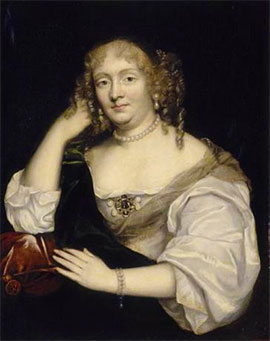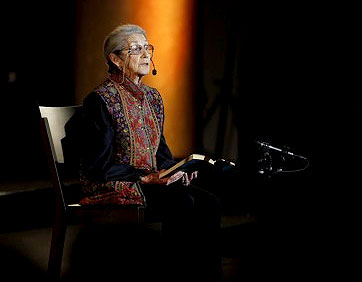The risk of freedom: public and private censorship
Words tend to lose their meaning through overuse. Freedom, democracy, censorship: we colour these words, we place them in dubious company and confound them to the point where they hardly recognize themselves any more. Through repetition they become empty, and then we have to reach for the dictionary to try and recapture the original meaning of what we want to say. The dictionary defines censor as: “1. one empowered to judge the fitness of manuscripts, communications, etc., for publication, 2. One who censures; a faultfinder; — to judge critically; examine for fitness, delete as unsuitable”. Several words strike one as ominous: empowered and faultfinder, for example. Someone has been given the power to find faults with someone else´s writing. Who empowers the faultfinder? Society, public opinion, that most mysterious of institutions, the system? Furthermore, once faults having been found, they are to be deleted as unsuitable. Unsuitable for whom? We have two victims of censorship: the writer, whose work is subjected to such empowered scrutiny, and the potential reader, who is deprived of his right to judge for himself. One cannot help but think of a pile of books being burned in the public square: books, not a musical composition or a sculpture. William Shakespeare, a man known —among other things— for his love of life, said that “censorship is art made tongue-tied by authority”. I call upon another writer, one of impeccable moral credentials, John Milton: “Who kills a man kills a reasonable creature, God´s image, but he who destroys a good book, kills reason itself, kills the image of God, as it were in the eye”.
Mme. de Sevigné and her times
 Marie de Rabutin Chantal, marquise de Sevigné, was 70 years old when she died, 300 years ago, in April of 1696. She lived in what is called the century of Louis XIV, so well described by Voltaire: “It was a time worth the attention of times to come, when the heroes created by Corneille and Racine, Moliere’s characters and Lulli’s symphonies spoke to Louis XIV, to Madame ‑so celebrated by her refined taste- to Condé, Colbert, to all those men superior in every sense. No other time will be found in which the Duke de la Rochefoucauld, the author of the Maximes, after conversing with Pascal, attended a play by Corneille”. The glory of France pervades the century; two great politicians, Richelieu and Mazarin, lay the foundations for Louis XIV’s absolute monarchy, supported by the great bourgeoisie. The court at Versailles is the center of attention, ambition and talent. Modern French is born and the French Academy founded (1635); its first dictionary is published in 1694. It is the time of Racine’s and Corneille’s classical theater, Moliere’s satirical plays, the janseniste Pascal’s philosophical Pensées, La Fontaine’s fables; Descartes’ Discours de la Méthode brings order and logic into the minds of men. The literature and ideas from France that inundated the European world of that time still live among us.
Marie de Rabutin Chantal, marquise de Sevigné, was 70 years old when she died, 300 years ago, in April of 1696. She lived in what is called the century of Louis XIV, so well described by Voltaire: “It was a time worth the attention of times to come, when the heroes created by Corneille and Racine, Moliere’s characters and Lulli’s symphonies spoke to Louis XIV, to Madame ‑so celebrated by her refined taste- to Condé, Colbert, to all those men superior in every sense. No other time will be found in which the Duke de la Rochefoucauld, the author of the Maximes, after conversing with Pascal, attended a play by Corneille”. The glory of France pervades the century; two great politicians, Richelieu and Mazarin, lay the foundations for Louis XIV’s absolute monarchy, supported by the great bourgeoisie. The court at Versailles is the center of attention, ambition and talent. Modern French is born and the French Academy founded (1635); its first dictionary is published in 1694. It is the time of Racine’s and Corneille’s classical theater, Moliere’s satirical plays, the janseniste Pascal’s philosophical Pensées, La Fontaine’s fables; Descartes’ Discours de la Méthode brings order and logic into the minds of men. The literature and ideas from France that inundated the European world of that time still live among us.
Nadine Gordimer: literature and politics
 The political novel is that difficult combination of esthetics and ethics that merges anecdote into history. To be truly successful as art, it most forego “political speech” as such, unless it be construed as the true conviction of fictionalized characters. Nadine Gordimer is a member of that elusive elite, the writer who reconciles the conflicting demands of both literature and politics. She was awarded the Nobel Prize for Literature in 1991 as a recognition of her talent.
The political novel is that difficult combination of esthetics and ethics that merges anecdote into history. To be truly successful as art, it most forego “political speech” as such, unless it be construed as the true conviction of fictionalized characters. Nadine Gordimer is a member of that elusive elite, the writer who reconciles the conflicting demands of both literature and politics. She was awarded the Nobel Prize for Literature in 1991 as a recognition of her talent.
